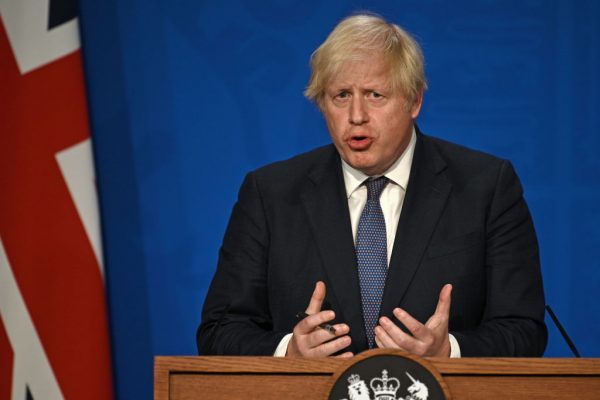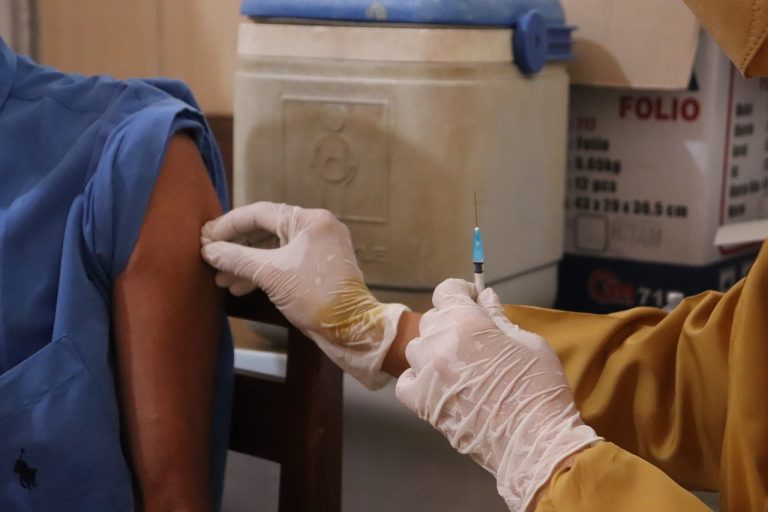With Beijing facing a chip shortage under U.S.-led global technology sanctions, Chinese companies have been aggressively acquiring global semiconductor plants since the coronavirus pandemic began last year. Its latest purchase was Newport Wafer Fab (NWF), the UK’s largest wafer fab. However, this cheap acquisition has attracted widespread attention from the public, prompting the UK government order an investigation on grounds of national security.
The Dutch company Nexperia, which is 100 percent owned and controlled by the Chinese firm Wingtech, has been the second-largest shareholder of NWF. NWF is the largest wafer fab in the UK and is now developing faster and more energy-efficient “compound semiconductors.”
On July 13, the British government, which had previously stated that it was “inappropriate to intervene” in the case, changed its stance in the face of public opposition. Prime Minister Boris Johnson said in a parliamentary question that his national security adviser, Sir Stephen Lovegrove, would launch an investigation into the £63-million (US$87.3 million) acquisition.
The acquisition started when Nexperia signed a support contract with NWF in 2019, using its factory as collateral. The Telegraph reported that the Chinese company was able to take full control of the factory because the British company failed to meet its manufacturing quota obligations under the deal.
The report also highlighted that, prior to the acquisition, NWF had appealed to the British government to help find a source of funding to stop the acquisition. But the British government did not intervene at that time.
Success
You are now signed up for our newsletter
Success
Check your email to complete sign up
The use of the “debt trap” to force acquisitions is also common in countries targeted by China’s Belt and Road. When the countries involved with Beijing’s infrastructure projects fail to repay their debts, their assets are seized by the Chinese firms.

NWF offers a 20nm process, which is mainly used for automotive wafers; as such, the acquisition fits with the Chinese government’s 2019 announcement that it would seek to become a leader in electric vehicle production. The Chinese Communist Party (CCP) aims to surpass the US in both technology and market shares by 2025.
NWF is one of the few remaining wafer fabs in the UK. It has a long history of funding from the UK government’s Department of Innovation and Research, receiving $24.93 million from the Welsh local government to date in order to preserve the long-established talent and industrial clusters.
The British government’s China Research Group and chairman of the Foreign Affairs Select Committee, Tom Tugendhat, said, “This is the first real test of the new legislation since its introduction in April. The Government is yet to explain why we are turning a blind eye to Britain’s largest semiconductor foundry falling into the hands of an entity from a country that has a track record of using technology to create geopolitical leverage.”
In a letter to Business Secretary Kwasi Kwarteng last month, Tugendhat warned, “With the world experiencing a shortage in semiconductor production and companies and countries competing over the limited supply that exists, it is crucial that the UK protects its strategically valuable manufacturing resources.”
Opposition to the acquisition from both parties in the UK also pointed out that even if NWF cannot compete with TSMC and other top-tier fabs, it can help solve the local demand for chips for the automotive and communications industries, not to mention that the UK government has been investing for a long time and just sees a glimmer of success in its transformation.
The dissenting voices also mentioned that during the summit of the Group of Seven major industrial nations held in the United Kingdom this June, the leaders of the nations clearly expressed in their joint declaration their desire to strengthen the security of the global supply chain, especially for industrial products such as semiconductors.
The UK started developing its wafer industry before 2000. But due to slow R&D and the emergence of strong rivals such as TSMC and Samsung, many factories have gone bankrupt and closed down. In 2018, Canyon Bridge Capital Partners, a subsidiary of Ping An Insurance Group of China, also acquired Imagination Technologies. Imagination Technologies is a British graphics chip design company, which supplies chip designs used by Apple Inc. The acquisition was approved by then-Prime Minister Theresa May, even though one of the funds’ founders was under investigation by the FBI for insider trading.
Chinese investors have also focused on Italy, where the economy has been stagnant for a long time. In March 2021, Shenzhen Invenland Investment Holdings Co. actively pursued a stake in the local chip-equipment company LPE. The deal was canceled after the Italian cabinet intervened. The Italian cabinet said at that time that it would also consider joint ventures with EU countries to rebuild semiconductor production capacity.
“Newport Wafer Fab is extremely worrying,” Conservative MP and member of the Foreign Affairs Committee Bob Seely said in an interview. “We need coherence on dealing with the Chinese state. I worry that we are still not there, and I worry that we are still failing to understand our dependency on China and the need to move away from that trade dependency.”
Bloomberg also reported that it’s rare for the UK to halt a sale on grounds of national security. However, it happened in 2020 when a Chinese investor removed a bid for defense manufacturer Mettis Aerospace Ltd. and Impcross Ltd.
A report in May revealed that Chinese companies and investors have bought up at least £135 billion in British companies, infrastructure, and property; 40 percent of the identified purchases were made since 2019.
In March 2020, the Beijing-backed Jingye Group also took over British Steel, which produces one-third of the UK’s steel.













